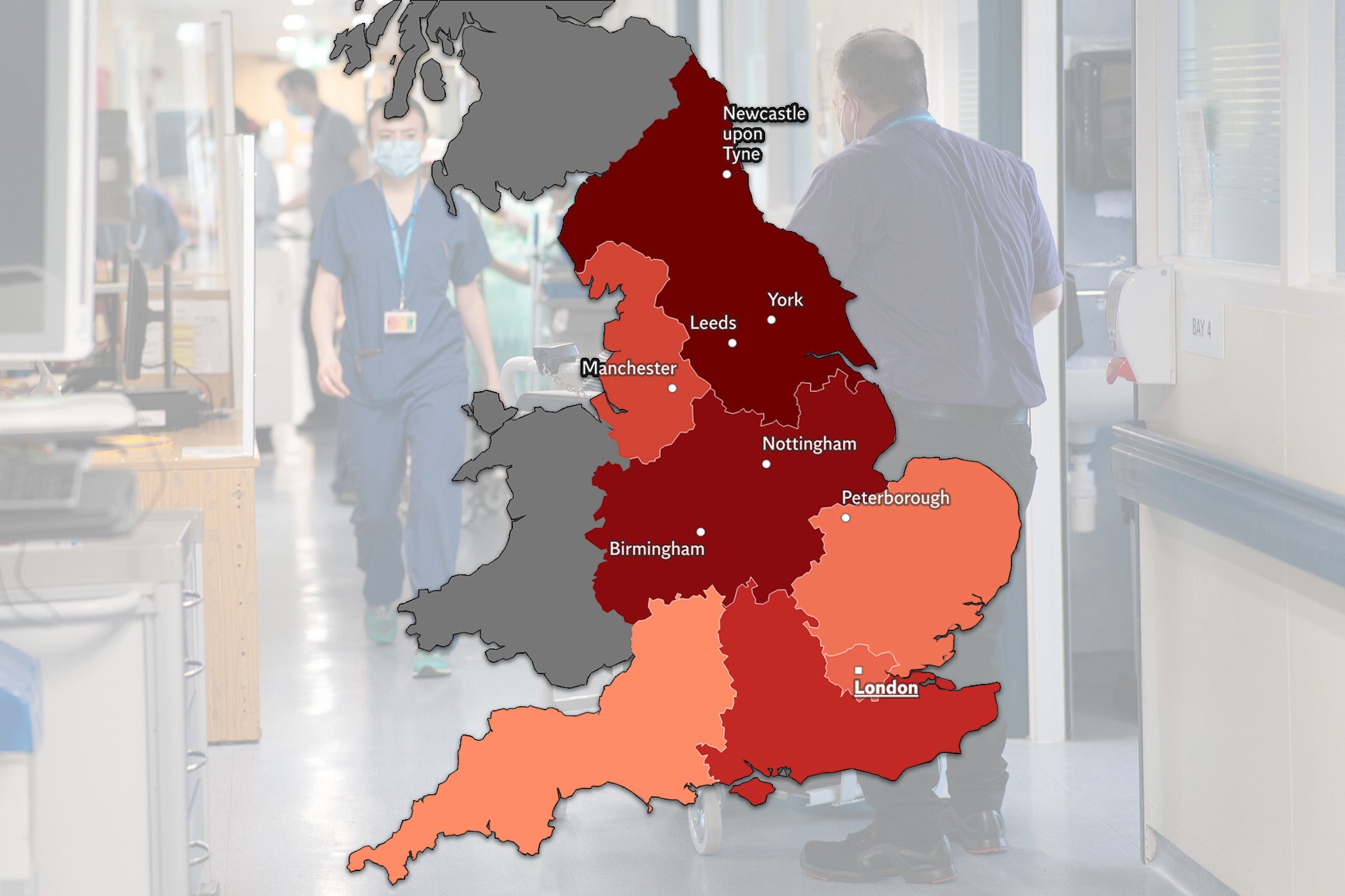Mapped: How many flu cases are in my area as hospitals declare critical incidents?
The number of people admitted to hospital with flu has quadrupled over the past month with health services feeling the strain

Your support helps us to tell the story
From reproductive rights to climate change to Big Tech, The Independent is on the ground when the story is developing. Whether it's investigating the financials of Elon Musk's pro-Trump PAC or producing our latest documentary, 'The A Word', which shines a light on the American women fighting for reproductive rights, we know how important it is to parse out the facts from the messaging.
At such a critical moment in US history, we need reporters on the ground. Your donation allows us to keep sending journalists to speak to both sides of the story.
The Independent is trusted by Americans across the entire political spectrum. And unlike many other quality news outlets, we choose not to lock Americans out of our reporting and analysis with paywalls. We believe quality journalism should be available to everyone, paid for by those who can afford it.
Your support makes all the difference.The number of flu cases has soared across England, with 5,074 patients with the virus being treated in hospital at the end of December.
This marks an increase of 305 per cent from the end of November, and is up by 352 per cent from the same day last year (1,458 patients).
The numbers are in line with 2022’s flu crisis, when 5,508 patients were in hospital with flu at end of December that year.
In the midst of this surge, eight hospitals across the country have declared critical incidents with “sustained pressures” are leading to waits of up to 50 hours.
The hospitals to declare the highest alert level used by the NHS are University Hospitals Birmingham NHS Trust’s four hospitals - Queen Elizabeth, Solihull, Good Hope and Heartlands - Derriford Hospital in Plymouth, Royal Liverpool Hospital, and Basingstoke and Winchester Hospitals.
Latest data shows the number of people in hospital with the flu varied significantly by region across the UK on 29 December, with the highest number in the North East and Yorkshire, where 1,170 beds were occupied by influenza patients.
In the region, NHS trusts in Sheffield, Northumbria, Tyneside and Hull were particularly affected, with 444 hospitalisations at the four hospital trusts alone.
The worst-hit hospital trust was University Hospitals Birmingham NHS Trust, which had 336 patients in hospital with influenza, including 13 of these in critical care, across its sites.
Birmingham hospitals have consistently faced high numbers of flu patients since the start of the winter, according to NHS data.
Yet the latest NHS data also shows that only 13 per cent of patients deemed “fit for discharge” were actually sent home.
The Midlands had the second highest number of flu patients, followed by the South East where the worst-hit area was Surrey and Hampshire.
Hampshire Hospitals NHS Foundation Trust, which had 82 patients with flu, declared a critical incident for its two hospitals on Tuesday.
A spokesperson said: “Beds across both hospitals are full and attendance at our emergency departments is extremely high, which means there is currently no capacity to admit further patients needing our care.”
The North West had 628 flu hospitalisations, with the highest number in Manchester.
The East of England had 527 patients hospitalised for flu, primarily in Essex. In neighbouring London, 530 flu patients were in hospital on 29 December.
Overall, positive flu tests are up by 66 per cent from the end of November.
One in three (30.6 per cent) of tests came back positive for influenza in the week up to December 28, 2024. This is in line with 2022 levels, but far higher than 2023.
Join our commenting forum
Join thought-provoking conversations, follow other Independent readers and see their replies
Comments